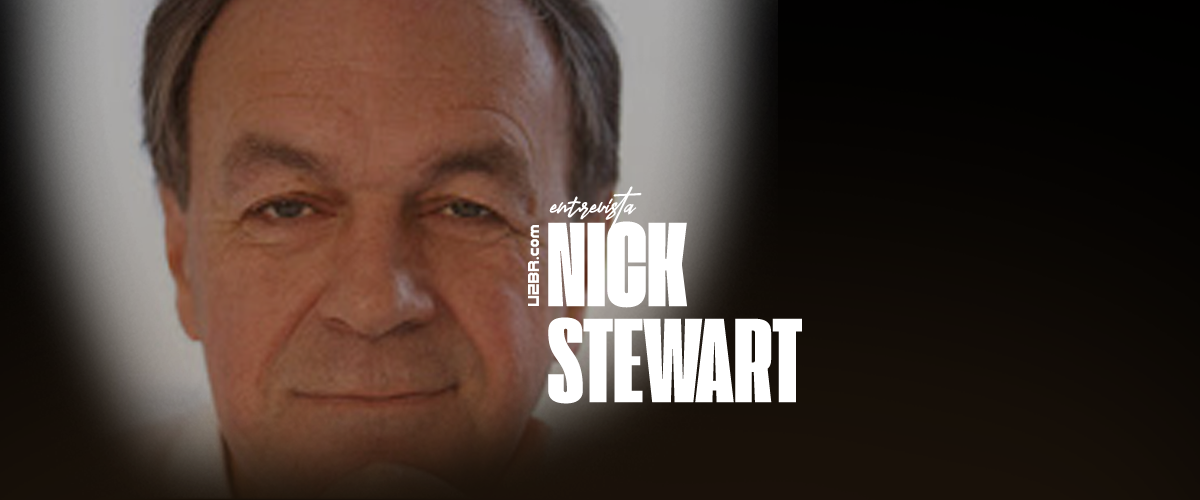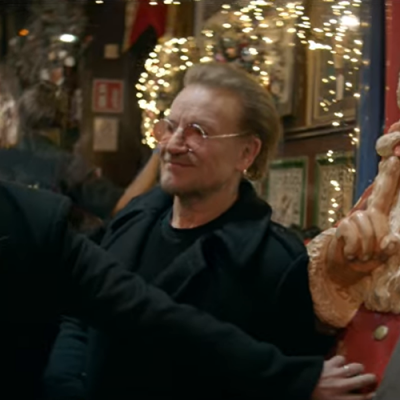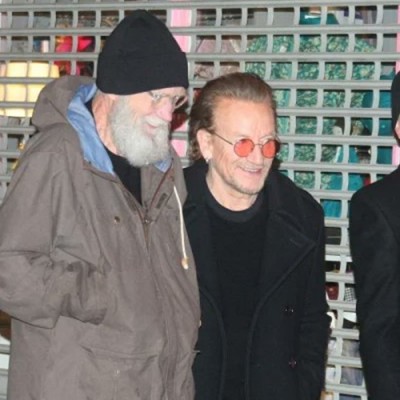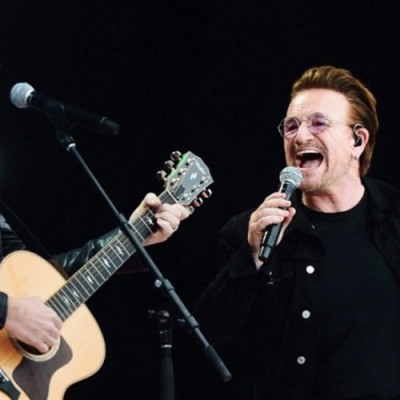Agosto de 1979, Nick Stewart passava a fazer parte da equipe da Island Records. Sua tarefa como membro do time da A&R (Artists & Repertorie, a parte de dentro de uma gravadora responsável por encontrar novos talentos e supervisionar o seu desenvolvimento e crescimento artístico) era a busca por novos talentos para compor o quadro da gravadora irlandesa, que acabava de colocar pela primeira vez um dos seus artistas como o número 1 das paradas de singles com "Video Killed The Radio Star" do Buggles. E o começo da carreira de Nick na Island Records uniu ele em definitivo ao destino do U2 quando foi convidado pelo então empresário Paul McGuinness a assistir ao show da banda no National Stadium de Dublin em 26 de fevereiro de 1980.
"Eu não tinha certeza do que estava assistindo ou quão grande poderia ser, mas senti que estava destinado a se tornar significativo. Isso certamente me emocionou." - Nick Stewart, em passagem retirada do livro North Side Story
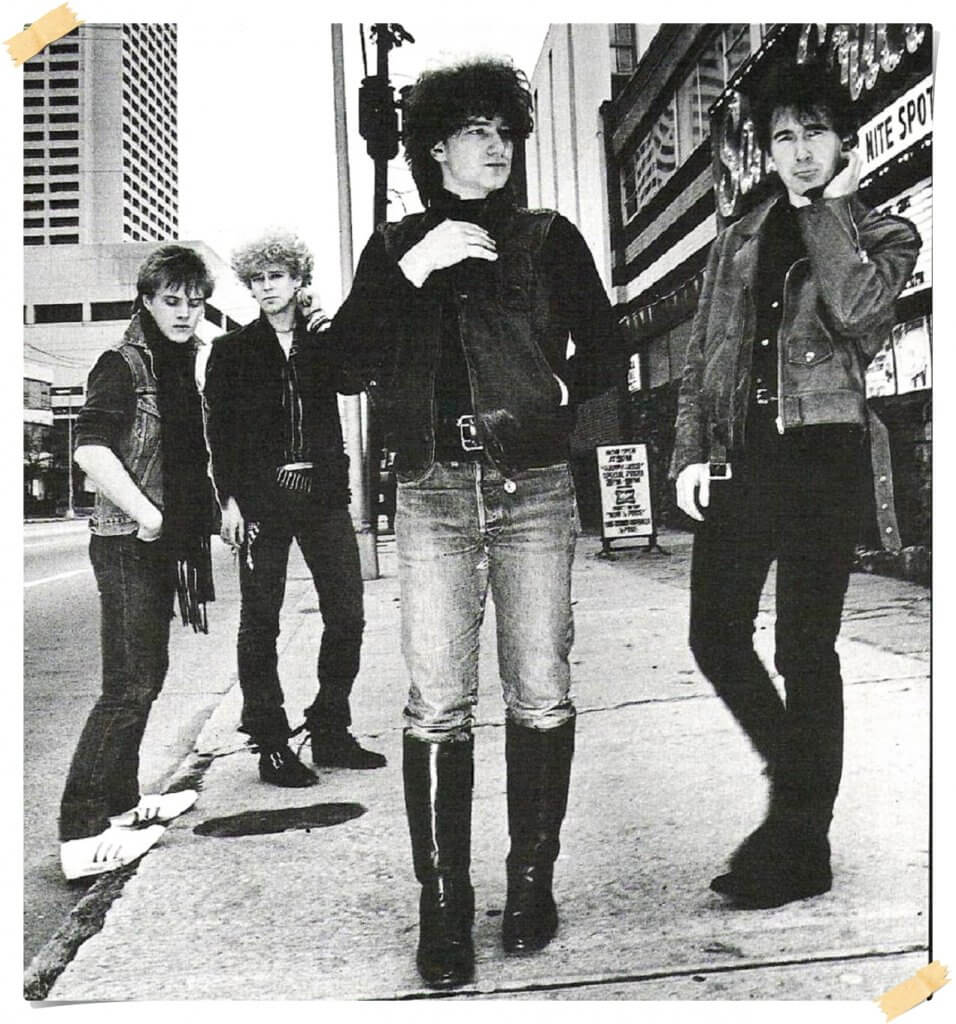
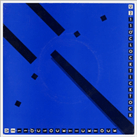 Aquela noite acabaria por mudar o destino de ambos. Com seu primeiro contrato assinado, "11 O’Clock Tick Tock" tornou-se o single de estreia do grupo com a gravadora, lançado em 23 de maio de 1980. O dinheiro não era muito: 50 mil libras de antecedência mais 50 mil libras para a turnê. Mais importante, o acordo era por 4 anos, cobrindo quatro álbuns, com três singles a serem lançados no primeiro ano. O acordo exigia que o álbum de estreia fosse gravado em agosto para ser lançado em outubro ("Boy" foi lançado em 20 de outubro de 1980).
Aquela noite acabaria por mudar o destino de ambos. Com seu primeiro contrato assinado, "11 O’Clock Tick Tock" tornou-se o single de estreia do grupo com a gravadora, lançado em 23 de maio de 1980. O dinheiro não era muito: 50 mil libras de antecedência mais 50 mil libras para a turnê. Mais importante, o acordo era por 4 anos, cobrindo quatro álbuns, com três singles a serem lançados no primeiro ano. O acordo exigia que o álbum de estreia fosse gravado em agosto para ser lançado em outubro ("Boy" foi lançado em 20 de outubro de 1980).
"O Capitão media quase 1,90m, tinha um queixo que mais parecia uma peça mal acabada e uma voz muito suave. Disseram-nos que tinha pertencido ao Exército Britânico e aos serviços secretos como agente à paisana na Irlanda do Norte durante os conflitos. Lembro-me de ter pensado: 'O Capitão tentando passar por irlandês? Não é possível'." - Bono, em passagem retirada do livro U2 by U2
 Você sabia?
Você sabia?
Seu apelido rendeu ainda uma referência na canção "Vertigo", na qual The Edge diz, "Turn it up loud, captain!" (Aumente o volume, capitão!), logo após a contagem inicial de Bono.
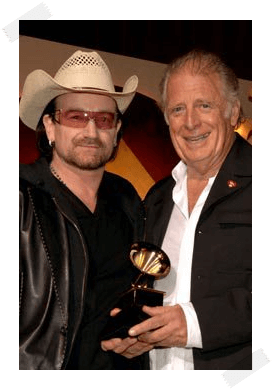 O U2 sempre disse que devia a sua carreira a Island Records, e especialmente ao seu fundador, Chris Blackwell. Essa relação durou até 2006, logo após o lançamento de "How to Dismantle An Atomic Bomb", por motivos de mudanças na direção do selo que os fizeram acompanhar o diretor Jason Iley para a Mercury Records, lançando o disco seguinte ["No Line on the Horizon"] nesta gravadora. Contudo, isso foi por pouco tempo, já que em 2013 os irlandeses assinaram um novo contrato com a Island Records para o lançamento de "Songs of Innocence".
O U2 sempre disse que devia a sua carreira a Island Records, e especialmente ao seu fundador, Chris Blackwell. Essa relação durou até 2006, logo após o lançamento de "How to Dismantle An Atomic Bomb", por motivos de mudanças na direção do selo que os fizeram acompanhar o diretor Jason Iley para a Mercury Records, lançando o disco seguinte ["No Line on the Horizon"] nesta gravadora. Contudo, isso foi por pouco tempo, já que em 2013 os irlandeses assinaram um novo contrato com a Island Records para o lançamento de "Songs of Innocence".
Nick, durante 28 anos, passou por grandes nomes sob o seu zeloso guarda-chuva e por diversas companhias. The Smiths esteve sob os seus cuidados na Stiff. Na Polygram, no início dos anos 90, coordenou toda a reedição do catálogo da gravadora em cassete e LP, cuidando pessoalmente da discografia de nomes como Elton John, Dire Straits, Big Country, Thin Lizzy, Rod Stewart, Dusty Springfield, Burt Bacharach, Squeeze e Dexy's Midnight Runners. Em parceria com o gigante do comércio britânico Marks & Spencer, lançou uma linha de compilação de grandes artistas, em um negócio que resultou lucros de mais de 4 milhões de libras em 18 meses. Um adendo para aqueles que viveram o começo dos anos 2000/final dos 90: um dos maiores "hits chiclete" desse período também é culpa de Nick, já que na época em que foi vice-presidente sênior da divisão internacional da gravadora BMG, ele descobriu e lançou Lou Bega e seu "Mambo No. 5" ao mundo.
 Em 2007, Nick fundou a Nick Stewart & Associates, uma consultoria que incorpora o trabalho de marketing, exploração de catálogo, licenças e outros pontos para diversos artistas. Na lista de seus clientes, além de obviamente estar nossa banda favorita, aparecem nomes como The Eagles, Don Henley, Neil Diamond, Fremantle TV e Live From Abbey Road. Nove anos depois ele decidiu fundar seu próprio selo de gravação, a "Man In The Moon Records".
Em 2007, Nick fundou a Nick Stewart & Associates, uma consultoria que incorpora o trabalho de marketing, exploração de catálogo, licenças e outros pontos para diversos artistas. Na lista de seus clientes, além de obviamente estar nossa banda favorita, aparecem nomes como The Eagles, Don Henley, Neil Diamond, Fremantle TV e Live From Abbey Road. Nove anos depois ele decidiu fundar seu próprio selo de gravação, a "Man In The Moon Records".
Em mais uma entrevista exclusiva, conversamos por telefone com esta mais do que importante figura do “folclore u2niano”. Entre outros assuntos, trazemos a vocês a resposta sobre a lenda do primeiro contrato da banda ter sido assinado em um banheiro feminino, além de nos contar pontos fascinantes sobre a sua carreira, a indústria da música e mais curiosidades que envolvem o U2.
A primeira vez que você foi ver o U2 foi em janeiro de 1980 no National Stadium em Dublin. Quais são suas memórias daquela noite? Como era o som dos garotos naquela época?
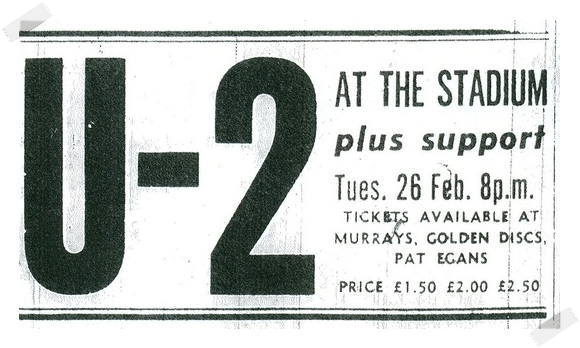 Bom, minhas memórias daquela noite ainda estão bem vivas na minha mente, naquela noite em janeiro eu tinha retornado de umas férias adoráveis no leste da África onde estava jogando cricket e foi uma viagem incrível, então eu voltei pra Irlanda, estava totalmente relaxado e pronto pra trabalhar e quando eu estava quase no escritório o primeiro telefonema que recebi foi do empresário da banda, Paul McGuinness, dizendo “você tem que vir amanhã pra ver minha banda”, então eu disse "sim eu vou, claro". Eu reservei meu voo e eu lembro que estava uma noite muito chuvosa, fria e ventava muito, então quando cheguei no aeroporto de Dublin estava chovendo muito, então entrei no carro e dirigi até o centro, no Shelbourne Hotel, onde encontrei Paul McGuinness.
Bom, minhas memórias daquela noite ainda estão bem vivas na minha mente, naquela noite em janeiro eu tinha retornado de umas férias adoráveis no leste da África onde estava jogando cricket e foi uma viagem incrível, então eu voltei pra Irlanda, estava totalmente relaxado e pronto pra trabalhar e quando eu estava quase no escritório o primeiro telefonema que recebi foi do empresário da banda, Paul McGuinness, dizendo “você tem que vir amanhã pra ver minha banda”, então eu disse "sim eu vou, claro". Eu reservei meu voo e eu lembro que estava uma noite muito chuvosa, fria e ventava muito, então quando cheguei no aeroporto de Dublin estava chovendo muito, então entrei no carro e dirigi até o centro, no Shelbourne Hotel, onde encontrei Paul McGuinness. 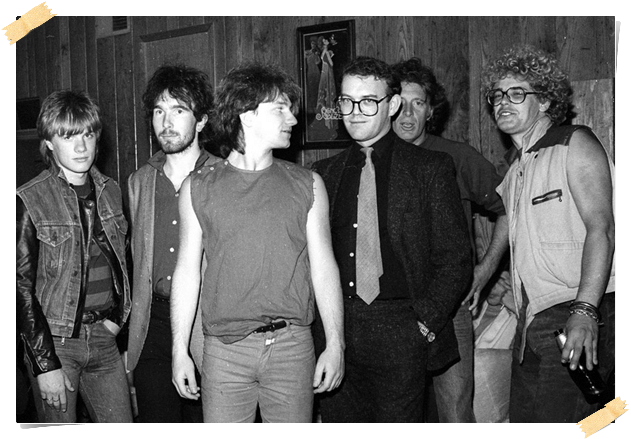 Nós tomamos uma pint de Guinness e eu pensei que iria encontrar mais pessoas lá, mas por razões que se tornaram claras depois. Todos os convidados eram da área de negócios de discos britânicos e eu fui o único que apareceu na noite, e foi uma pena porque várias pessoas do mundo da música foram convidadas e eu fui o único que compareceu para ver a banda. O que aconteceu foi que a banda apareceu no palco para um público grande, e havia um grau de ingenuidade porque a maioria dos shows que fui para ver novas bandas tinham três pessoas e um cachorro, e geralmente o cachorro é quem mais se interessa. Então ver uma apresentação com um grande público local foi o plano ideal de Paul McGuinness, porque eles realmente tinham fãs, e eu gostei muito, estava impressionado com toda a performance ao vivo, e foi assim que tudo começou.
Nós tomamos uma pint de Guinness e eu pensei que iria encontrar mais pessoas lá, mas por razões que se tornaram claras depois. Todos os convidados eram da área de negócios de discos britânicos e eu fui o único que apareceu na noite, e foi uma pena porque várias pessoas do mundo da música foram convidadas e eu fui o único que compareceu para ver a banda. O que aconteceu foi que a banda apareceu no palco para um público grande, e havia um grau de ingenuidade porque a maioria dos shows que fui para ver novas bandas tinham três pessoas e um cachorro, e geralmente o cachorro é quem mais se interessa. Então ver uma apresentação com um grande público local foi o plano ideal de Paul McGuinness, porque eles realmente tinham fãs, e eu gostei muito, estava impressionado com toda a performance ao vivo, e foi assim que tudo começou.
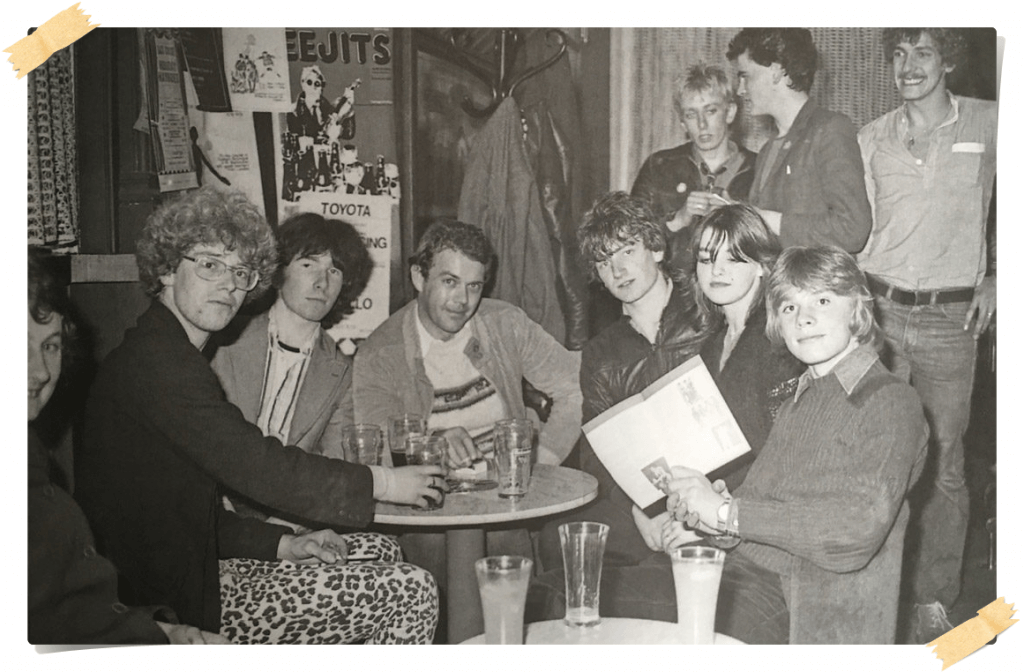 Como todos sabemos, a assinatura do primeiro contrato do U2 com a Island Records aconteceu no banheiro feminino do Lyceum Ballroom em Londres. Você tem alguma memória daquela noite?
Como todos sabemos, a assinatura do primeiro contrato do U2 com a Island Records aconteceu no banheiro feminino do Lyceum Ballroom em Londres. Você tem alguma memória daquela noite?
Não, as conversas aconteceram num pequeno provador em Londres, Chris Blackwell estava lá para vê-los, mas posso te confirmar que o contrato foi assinado num escritório da Island Records na presença dos advogados da banda e um representante legal da Island Records.
Ok, é que lemos sobre...
Tudo bem, mitos acontecem no mundo da música e quando o mito é melhor que a verdade, mantenha o mito. Mas posso te afirmar que o contrato foi assinado entre os portões da Island Records.
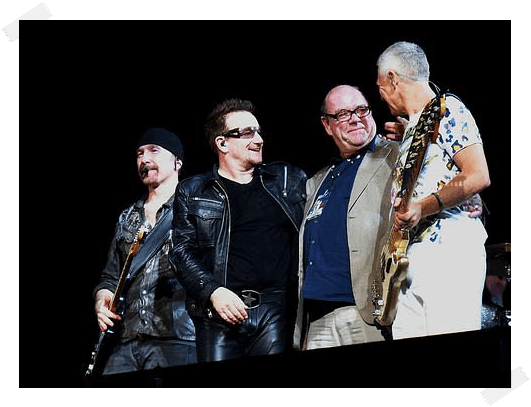 A Island Records foi a única gravadora que acreditou no potencial do U2 quando ninguém mais acreditava. Como você se sente sabendo que depois de 38 anos você foi o responsável por isso?
A Island Records foi a única gravadora que acreditou no potencial do U2 quando ninguém mais acreditava. Como você se sente sabendo que depois de 38 anos você foi o responsável por isso?
Bom, é um comentário gentil, mas várias pessoas foram responsáveis por ajudar a banda no seu caminho, eu sempre digo que Rob Partridge teve um papel fundamental em tudo, a equipe de comunicação, o assistente da época, Neil Store. Empresários da indústria artística vivem ou morrem pelo o que assinam, e eu assinei alguns contratos que foram sucessos, neste caso este foi muito sucesso, e às vezes não, você faz o seu trabalho. É como olheiros de futebol. No futebol, você está observando e às vezes surge um George Best (jogador norte-irlandês de futebol dos anos 60 à 80), às vezes um Dick Best (antigo treinador de Rugby e atual jornalista britânico), é como o trabalho funciona. Eu sou muito orgulhoso por isso, mas depois disso, o trabalho é da banda e de um empresário muito esperto e que tem que estar no comando, que foi Paul McGuinness. Cada membro da banda é brilhante, inteligente, pessoas talentosas, lutando juntos pelo mesmo objetivo, em parceria com o empresário.
A banda está na estrada há muito tempo. Você tem um período favorito deles?
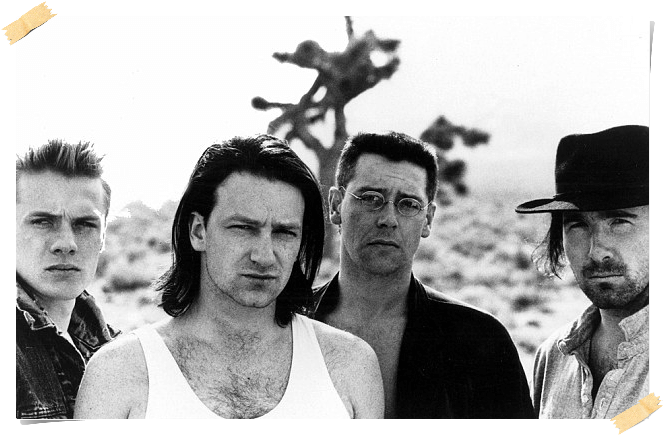 Bom, é interessante, tem muitos artistas que tem a capacidade de mudar, David Bowie é um deles, os Rolling Stones são certamente um grande ato do rock, e U2 é outro. U2 fez diferentes tipos de discos, o que é muito desafiador e inteligente. Se você perguntar a pessoas entre 50 e 70 anos quais os álbuns de rock mais importantes quando eles estavam crescendo eles provavelmente dirão "The Joshua Tree"; há "OK Computer" do Radiohead, há o "Automatic for the People" do R.E.M e U2 foi capaz de fazer outro com "Zooropa" e "Acthung Baby" e continuou a fazer discos muito bons, como o último ["Songs of Experience"], que eu acredito que é um dos melhores deles. Na época de 1986 com o lançamento do "The Joshua Tree" eles estavam magníficos, eles estavam na melhor fase, e foi um ano de grandes álbuns como "Lifes Rich Pageant" do R.E.M., "Graceland" do Paul Simon, "Beastie Boys", "Run DMC", muito bons discos como Prince com "Parade", mas "The Joshua Tree" foi o melhor. Se eu tivesse que levar um álbum do U2 pra minha ilha deserta comigo seria o "The Joshua Tree", ou melhor, o “disco” que eu levaria pra minha ilha deserta seria "Kite" do álbum "All That You Can’t Leave Behind".
Bom, é interessante, tem muitos artistas que tem a capacidade de mudar, David Bowie é um deles, os Rolling Stones são certamente um grande ato do rock, e U2 é outro. U2 fez diferentes tipos de discos, o que é muito desafiador e inteligente. Se você perguntar a pessoas entre 50 e 70 anos quais os álbuns de rock mais importantes quando eles estavam crescendo eles provavelmente dirão "The Joshua Tree"; há "OK Computer" do Radiohead, há o "Automatic for the People" do R.E.M e U2 foi capaz de fazer outro com "Zooropa" e "Acthung Baby" e continuou a fazer discos muito bons, como o último ["Songs of Experience"], que eu acredito que é um dos melhores deles. Na época de 1986 com o lançamento do "The Joshua Tree" eles estavam magníficos, eles estavam na melhor fase, e foi um ano de grandes álbuns como "Lifes Rich Pageant" do R.E.M., "Graceland" do Paul Simon, "Beastie Boys", "Run DMC", muito bons discos como Prince com "Parade", mas "The Joshua Tree" foi o melhor. Se eu tivesse que levar um álbum do U2 pra minha ilha deserta comigo seria o "The Joshua Tree", ou melhor, o “disco” que eu levaria pra minha ilha deserta seria "Kite" do álbum "All That You Can’t Leave Behind".
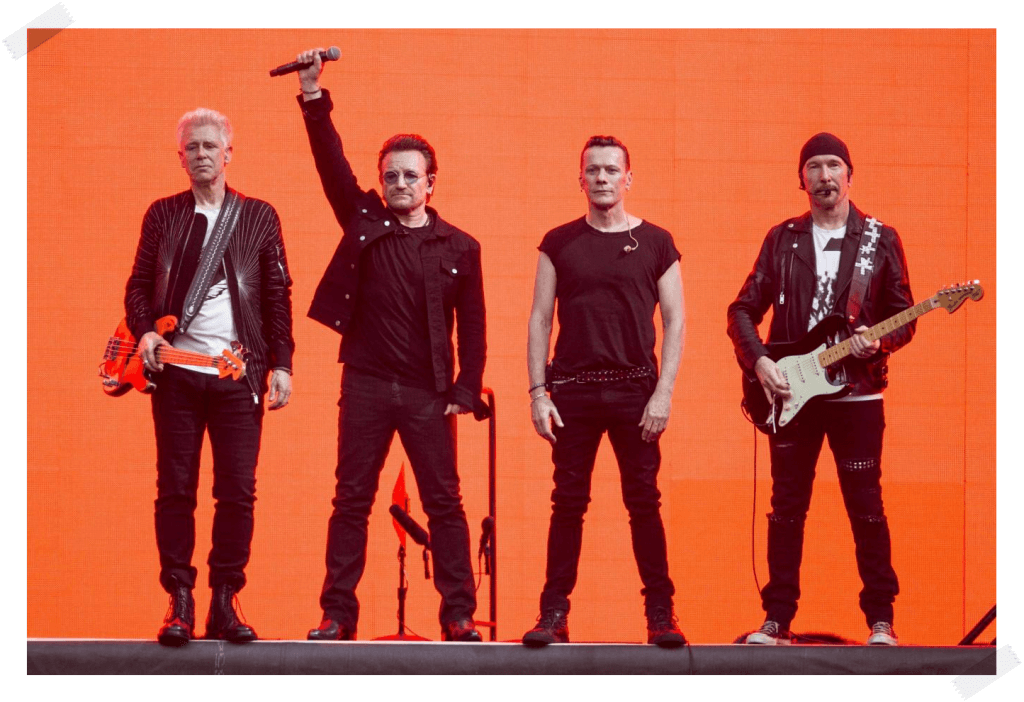 Você também acha que a The Joshua Tree Tour de 1987 foi a melhor turnê de todas? Ou você tem outra preferida?
Você também acha que a The Joshua Tree Tour de 1987 foi a melhor turnê de todas? Ou você tem outra preferida?
Eu acho que as turnês só se tornaram maiores e melhores e mais “uau!” ao longo do tempo. Eu fui assistir a turnê The Joshua Tree de 2017 e foi incrível, absolutamente incrível, eles colocaram o público para vibrar, eles tocaram o álbum. No entanto não tenho certeza. Claro que a turnê de 87 os colocaram no topo como uma super banda. Essa nova [Experience + Innocence] tenho certeza que será ótima, irei assisti-la.
Falando sobre novas bandas, novos grupos, você tem alguma nova banda ou grupo que te relembra a mesma energia do U2 no início da carreira deles?
É uma boa pergunta. Não, acho que não. Acho que estou um pouco por fora de novos momentos, mas vivemos numa era onde bandas de rock não são comuns, é mais um puro mercado do pop, um mercado black urbano com muito rap. Qual foi a última vez que você ouviu uma banda nova e talentosa de rock? É muito raro, é muito difícil de encontrar.
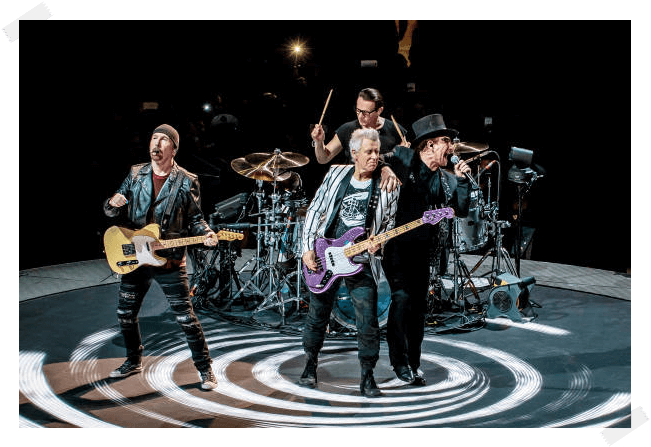 Sobre o futuro do U2, você acredita que eles terão um fim de alguma forma ou apenas uma pausa, maneirar um pouco, ou você acha que isso é impensável?
Sobre o futuro do U2, você acredita que eles terão um fim de alguma forma ou apenas uma pausa, maneirar um pouco, ou você acha que isso é impensável?
Eu não sei, isso depende deles, os Rolling Stones estão na ativa 20 anos a mais do que eu achei que eles estariam, eu fui vê-los em Cardiff (País de Gales) e fiquei impressionado com tudo, foi ótimo. U2 são 20 anos mais novos do que eles, então eles podem continuar o quanto quiserem, enquanto as pessoas pagarem para vê-los, eles vão continuar, trazer novas coisas. Ou então eles vão continuar como R.E.M. até chegar um dia em que eles vão dizer que é hora de parar, mas eu não sei.
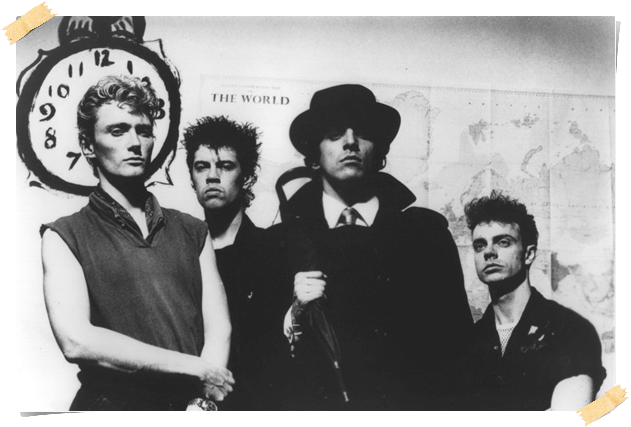 Se você tivesse que escolher três artistas ou bandas que você mais se orgulha em toda sua carreira, quais escolheria?
Se você tivesse que escolher três artistas ou bandas que você mais se orgulha em toda sua carreira, quais escolheria?
Bom, os três artistas que eu escolheria seriam U2, The Long Riders e Killing Joke. Digo, estes são os que eu assinei e trabalhei junto. Killing Joke era uma ótima banda de rock com muita sensibilidade e eles têm isso desde quando os vi no início de carreira, depois trabalhei com eles novamente. 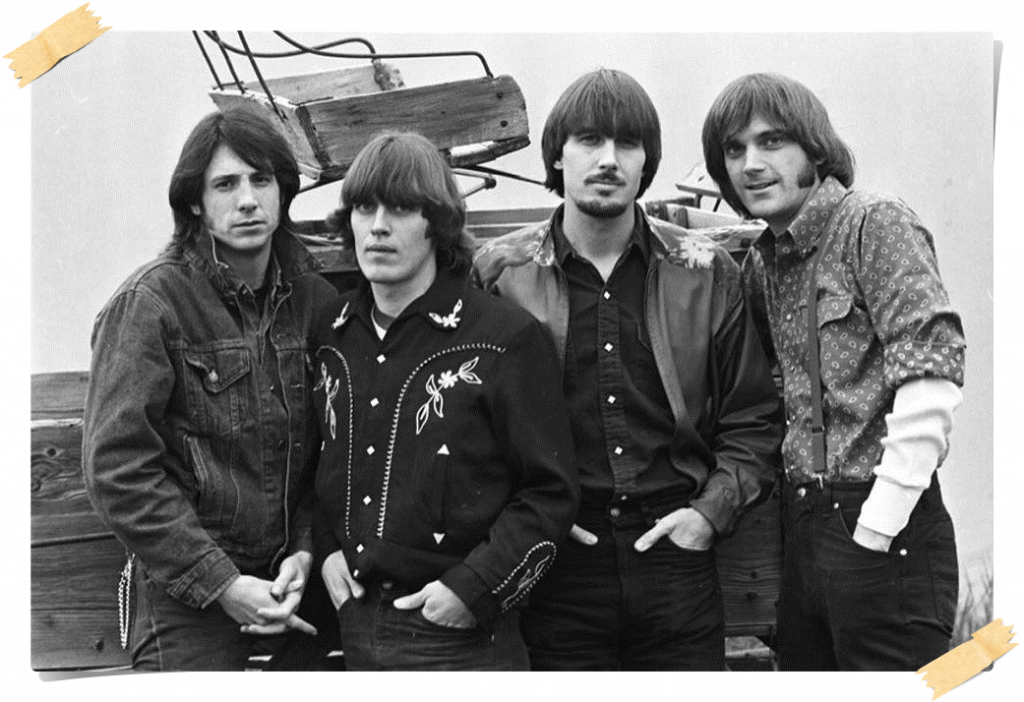 The Long Ryders eram uma banda da Costa Oeste muito parecida com The Birds e Buffalo Springfield, eles eram muito bons, eu gostei muito de trabalhar com todos eles. The Killing Joke e The Long Riders tiveram um bom sucesso. The Long Riders deveriam ter feito mais sucesso, mas aconteceu problemas no caminho, e eles quase conseguiram. Contudo, o legado continua e eles tem muitos fãs até hoje que sempre lembrarão deles.
The Long Ryders eram uma banda da Costa Oeste muito parecida com The Birds e Buffalo Springfield, eles eram muito bons, eu gostei muito de trabalhar com todos eles. The Killing Joke e The Long Riders tiveram um bom sucesso. The Long Riders deveriam ter feito mais sucesso, mas aconteceu problemas no caminho, e eles quase conseguiram. Contudo, o legado continua e eles tem muitos fãs até hoje que sempre lembrarão deles.
A equipe do U2BR gostaria de agradecer a gentileza de Nick por aceitar nosso convite e conceder um pouco do seu tempo para falar conosco. Nosso muito obrigado, Nick!
ENGLISH VERSION
August of 1979, Nick Stewart happened to be part of the team of Island Records. His work as a member of the A&R team (Artists & Repertorie, part of a record label responsible for finding new talent and supervising his development and artistic growth) was the quest for new talent to make up the Irish record label, which ended to put one of their artists for the first time as the number one singles chart with Video Killed The Radio Star by Buggles. And the beginning of Nick's career on Island Records finally linked him to the fate of U2 when he was invited by the manager Paul McGuinness to attend the band's show at the National Stadium in Dublin on February 26, 1980.
"I was not sure what I was watching or how big it might be, but I felt I was destined to become significant. It certainly thrilled me." - Nick Stewart, on a part from North Side Story book.
That night would eventually change the destiny from both of them. With its first contract signed, 11 O'Clock Tick Tock became the band's debut single with the label, released on May 23, 1980. The money was not much: 50,000 pounds in advance plus 50,000 pounds for the tour. More importantly, the deal was for four years, covering four albums, with three singles coming out in the first year. The deal required that the debut album should be recorded in August to be released in October (Boy was released on October 20, 1980).
"The captain was half a foot tall, he had a jaw that looked more like something poorly finished and a very soft voice. We were told that he had belonged to the British Army and to the secret services as plainclothes agent in Northern Ireland during the conflicts. I remember thinking: 'The Captain trying to be Irish? It's not possible.'" - Bono, in passing from U2 by U2.
Did you know?
His nickname also earned a reference in the song Vertigo, when The Edge says shortly after Bono's initial count, "Turn it up loud, captain!".
U2 has always said that they owed their career to Island Records, and especially to its founder, Chris Blackwell. This relationship lasted until 2006, following the release of How to Dismantle an Atomic Bomb, due to changes in the direction of the label that accompanied them with director Jason Iley to Mercury Records, releasing the following album [No Line on the Horizon] on this record company. However, this was for a short time since in 2013 the Irish signed a new contract with Island Records for the release of Songs of Innocence.
For 28 years Nick has gone on to great names under his zealous umbrella and various companies. The Smiths was under his care at Stiff. At the Polygram in the early 1990s, he coordinated the entire reprint of the label's catalog on tape and LP, taking care personally of the discography of names such as Elton John, Dire Straits, Big Country, Thin Lizzy, Rod Stewart, Dusty Springfield, Burt Bacharach, Squeeze and Dexy's Midnight Runners. In partnership with the British trade giant Marks & Spencer, it launched a compilation line of great artists in a deal that resulted in profits of over 4 million pounds in 18 months. An addendum for those who lived in the early 2000s / '90s: one of the biggest "chewing gum hits" of this period is also Nick's fault, since at the time he was senior vice president of BMG's international division, he discovered and released Lou Bega and his Mambo No. 5 to the world.
In 2007, Nick founded Nick Stewart & Associates, a consulting firm that incorporates marketing work, catalog exploration, licensing, and other points for various artists. In the list of his clients, besides being obviously our favorite band, there are names like The Eagles, Don Henley, Neil Diamond, Fremantle TV and Live From Abbey Road. Nine years later he decided to found his own recording label, Man In The Moon Records.
In another exclusive interview, we talked over the phone with this more than important figure of "U2nian folklore". Among other things, we bring you the answer to the legend of the band's first contract being signed in a ladies' room, as well as telling us fascinating points about their career, the music industry and more curiosities about U2.
The first time you went to see U2 was in January 1980 in Dublin. Do you have memories from that night? How did the boys sound?
Well, my memories of that night are actually quite indelibly engraved on my consciousness. On that night in January, I have returned from a lovely holiday in East Africa playing representative cricket, and it had been a great trip. So I came back to Ireland and literally the first phone call I got when I was in the office was the band manager, Paul McGuiness, saying "you must come tomorrow night to see my band" and I said "I will, perfect, why not?". And I booked myself a flight and all that, and got in the airplane. It was a bitterly cold, windy, rainy night. I remember thinking "God, are you going to do this?" and of course I did, I was sort of good state of mind. I got at the Dublin airport, it was washing down, got in the car, drove to center of town in Shelbourne Hotel where I was due to meet Paul McGuinness, we had a pint of Guinness. I sorted vaguely expected to be more than one person there, but it turned out for reasons that became clear later on. All the invitations have gone out to A&R men in the English record business. And I was the only one actually turned up on that night. From there really what happened was the band came out onstage, they sorted were mobbed by quite a big crowd. I suppose that one of the other things maybe, I hadn’t been doing that jog that long, but there was a degree what naïve about it because most gigs I went to see new bands there were three men and a dog and the dog was the most interested. To see an act with a quite big crowd, a local big home crowd, which it was exactly Paul McGuiness’ idea, plan, was “whoa”, they got real fans. Great. And I really liked them. The point number one was they got real fans but I really liked them and I was really impressed by the whole thing live. That’s how it all started.
As we know, the first singing of the first contract with Island Record happened in the female bathroom at the Lyceum Ballroom in London. Do you have any memories of that night?
No, the conversations held in a sport dressing room around London, Chris Blackwell was there to see them, but I can assure you the contract was signed in Island Records in an office in the presence of the band’s lawyers.
Ok, we’ve read something about it…
That’s right, the myth is the lord in the music business, and when the myth is better than the truth, play the myth. But I can assure you that the contract was signed within the portals in Island Records.
Island Records was the only label at that time that really believed potentially in the band when nobody believed in them. How is your feeling of knowing that after 38 years you are responsible for that?
Well, that’s a nice comment, different people were responsible for helping the band along the way. I’ve always maintained that the great [inaudible], Rob Partridge, played a part on the whole thing and the press office as did their assistance of the time Neil Storey. I mean, A&R men live and die by what they sign. I’ve signed a few action and some was successful, and on that case very successful, and others are not so successful, you’re doing your job. You’re like a talent scout in a football stadium. For a football team you’re talent scouting and sometimes you find a George Best (Northern Irish professional footballer) and sometimes you find, you know, a Dick Best (a former England rugby union coach, and current journalist). I don’t know, it’s what the job is. I am very proud for being responsible for the outgo but after that it stands at the band and a clever manager who played a big part, that’s Paul McGuinness. Each member of the band is bright, intelligent, and talent people, banding together for a very strong bond, fight together with their manager.
The band has been going through a long time. Do you have a favorite period of them?
It’s interesting, there are a handful of artists who have been able to slightly change, David Bowie is one, the Rolling Stones they are a primarily rock act, and U2 are another, I mean, U2 have made different kinds of records which is very talented and very clever. If you ask people aged between 50 or 70 what one of the finding rock albums when they were growing on was they would probably go for the Joshua Tree which it might be in my view the Ok Computer of Radiohead which people liked, or Automatic People by R.E.M. U2 were able to do another one with Zooropa and Achtung Baby, and they continue to make very good records, the last one [Songs of Experience] which I believe is one of their best. At that time, 1986, when they were releasing the Joshua Tree, that was a magnificent achievement, they were absolutely on the top of their games, and it was a good year for great albums, Lifes Rich Pageant of R.E.M. came out, Graceland [Paul Simon] came out, Beastie Boys came out, Run DMC, I mean there were a lot very good records out there at that year, Prince’s Parade I think came out that year, but Joshua Tree was one of the best. I had to take one of the U2’s album on a desert island would be the Joshua Tree, but my desert island disc of U2 would be Kite of the album All That You Can’t Leave Behind.
Do you also think that the Joshua Tree Tour of 87 is their best tour ever? Or do you have another one?
I think that the touring has just got bigger and better and more “whoa!” as they’ve gone along. I have to say that The Joshua Tree Tour of 2017 was amazing, absolutely amazing. So I’m not sure, I mean but obviously 87’ moved them to the super league, but the last tour… I’m sure that the gig I’m going to see in October [E&I Tour] will be great.
Speaking about new bands, do you think there are any that reminds you of U2 in the early days?
No, that’s a very good question, maybe I’m bit out of loop of the sort of things, although I get to see young actions, we live in an age there are no rock acts, you know? It’s pure pop business, it’s very blak urban business, it’s very rap. When did you last hear a new really talented tough arrogant rock act? Once upon a time, there’s none, you really struggle to find them.
Do you believe in some way U2 will have an end or just go for a long break or even slow down a bit, or do you think that’s unthinkable?
I don’t know, it’s up to them. Rolling Stones have gone on 20 years longer as I thought they would. There’s no criticism over them, I went to see the Rolling Stones in Cardiff and I was very impressed by the whole thing. The energy was there, everything was great. So, U2 are 20 years younger than then, so they can go on and on as long as they want. As long people pay to go to see them, they’ll go on and they’ll perform and bring new things. Or they could do just as R.E.M. and say "you know, why wouldn’t we stop?" I don’t know.
If you had to choose just three bands that make part of your work, what bands or artists would you choose and you think you are the most proud of it?
I’ll think of U2, The Long Riders and Killing Joke. Those were the ones I signed and worked with. Killing Joke were a great rock act, had a great sensibility and when they had it when I signed with them early in their lives and after I worked with them again. The Long Riders were a west-coast band very much in the model of The Birds and Buffalo Springfield, they were a great act. I’ve just enjoyed working with all them, but The Long Riders in particular and the Killing Joke ought to have proper success. Long Riders should have success but a couple of misfortune things happened and they quite made it, but their legacy lives on. They’ve got a lot of fans now who remember them well.
The U2BR staff would like to thank Nick for his kindness in accepting our invitation and giving a bit of his time to talk with us. Thank you very much, Nick!
